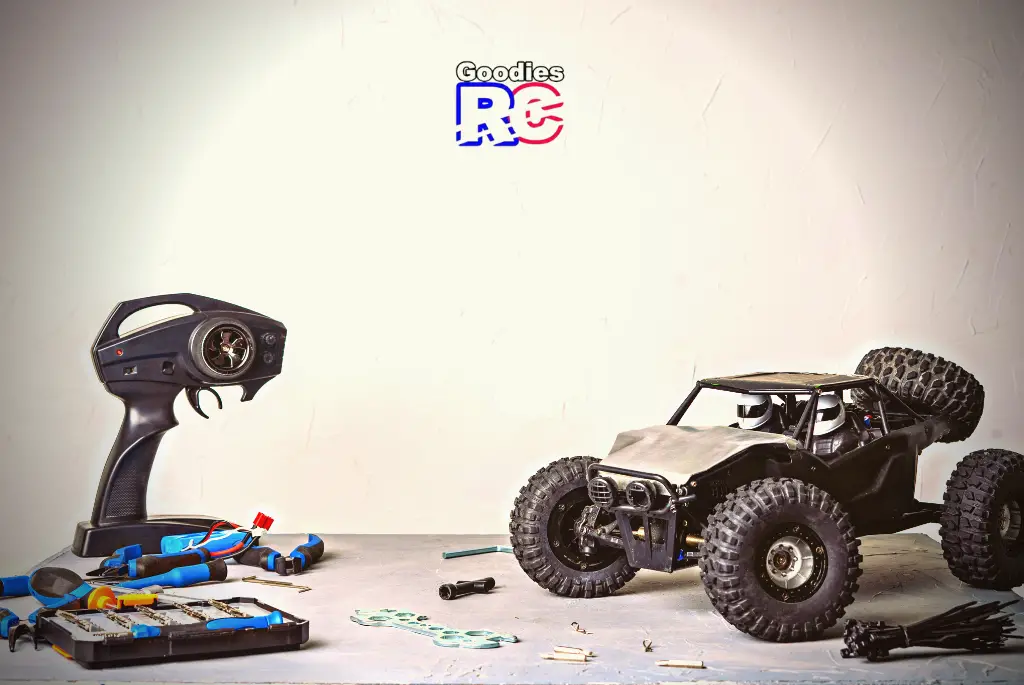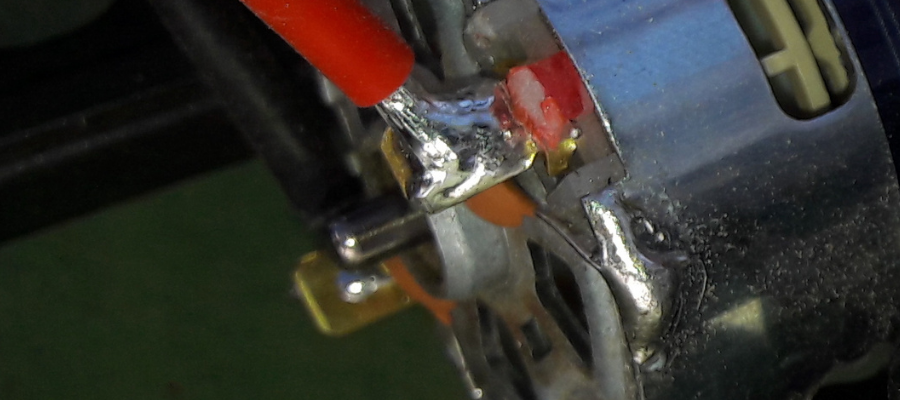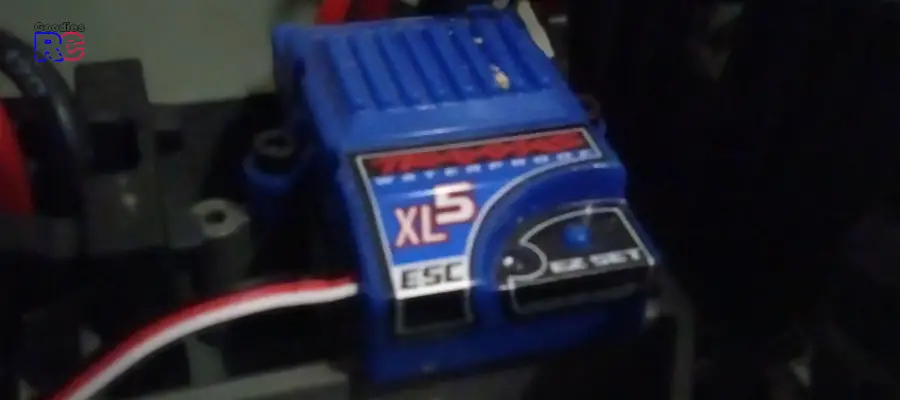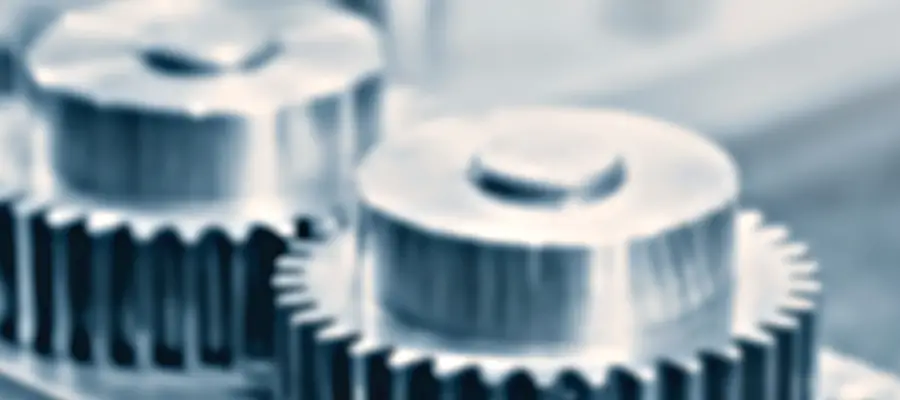Stuttering in an RC car can be a symptom of a few unique problems. In some cases, you won’t need to replace anything. So I’ll go over those solutions first.
Check the wiring is properly connected and not corroded. You might need to solder some connections. On sensored motors, make sure the sensor wire is connected and not damaged. The batteries might need to be fully charged or replaced. A faulty ESC can also cause stuttering.
In this article, we’ll go through the following steps to solve stuttering.

- Check the wiring.
- Connect the sensor wire.
- Test for short circuits in the motor.
- Charge or replace the batteries.
- Test the receiver.
- Replace the sensor wire.
- Test the ESC for shorts.
- Test with a different motor.
- Downsize the pinion gear.
Sensored motors run smoother during acceleration on the low end and prevent cogging. But if the sensor wire detaches or isn’t connected properly, it may cause stuttering.
Following your user manual to reset the ESC can also solve stuttering.
When it comes to brand new cars, I suggest going through an exchange process with the supplier before soldering or replacing anything, but there are some basic things you can do first without risking the warranty.
For older RC cars that are out of warranty, you might need to replace parts as discussed further below.
Check The Wiring
Remove the body from the car and check that all the wires are connected properly.
Every wire should be firmly connected to the electronics on both sides. Refer to the owner’s manual to verify the layout. It’s possible that there are loose or faulty connections, even if the RC is straight from the manufacturer.
Check Your Solder Joints

You also need to check that the caps are soldered properly to the wire. If any wires are disconnected, you might need to solder them on the right spots.
If you don’t have the tools for that, check with a friend or visit the hobby shop for assistance.
Connect The Sensor Wire
You might need to connect the sensor wire from the ESC to the motor even if it’s a new unit. Sometimes there are factory faults. The sensor wire has a rectangular connection point that needs to be inserted firmly into the motor and ESC.
Check out my post: RC car steers but won’t move?
Use long nose pliers to gently remove, inspect, and reinsert the sensor wire to the motor and ESC.
Test For Short Circuits In The Motor
You might have a bad motor.
Sometimes screws can short out the motor if they’re too close to the windings. You’ll need a multimeter with Continuity Test Mode to test for shorts.
This one by Etekcity is ideal, and won’t break the bank!
(Amazon link)
This mode will make a warning beep if it detects a short circuit. If you’re using a cheaper multimeter without this feature, you can also check for zero resistance to identify short circuits.
See my related article on how to tell if an RC motor is bad
Charge Or Replace The Batteries
Make sure the batteries in the RC are fully charged. If the batteries in the radio are old, replace them as well.
Although higher-quality batteries aren’t usually the cause for stuttering, if you’re using old batteries or lower quality batteries, you might need to replace them.
Test The Receiver
If the stuttering gets worse as the car goes further away, the receiver that tells the motor what to do might be faulty and losing signal as it moves further from the radio.
You’ll have to take the car in for someone to test with a new receiver.
Also, try recalibrating the remote so it reads correctly. This could solve the stuttering.
Replace The Sensor Wire
If you have an older RC and the sensor wire is a bit corroded, you’ll have to replace it.
I’ve even seen some sensor wires fail with no appearance of damage, so it could help to take the car to the hobby shop to test it.
Replace The ESC

An old ESC can begin to short circuit for no apparent reason. If you have your own multimeter to test for continuity throughout the ESC and find that there’s a short, you’ll have to replace it.
See my post on how to tell if your ESC is bad
A selection of ESC’s to suit any RC car can be seen here on Amazon.
Check The Motor
Check if the motor screws are touching the windings.
Check the motor wires are connected properly to the ESC.
Related post: Can A Bad ESC Burn Up An RC Motor?
Test With A New Motor
The motor itself could be the problem, it could simply be a bad motor, especially if it’s an older motor that’s been used a lot.
Upgrading to a motor with more poles can help because the more poles it has, the smoother it runs. Replacing the motor can be done within minutes to see if it eliminates the stuttering.
If you’re using a sensorless motor, you might be experiencing what is known as cogging.
What Is Cogging?
A “cogging issues” problem is when a brushless motor appears jumpy or jittering. It is much more common at slower speeds than faster ones because high speeds tend to smooth the motor out considerably.
As mentioned above, upgrading to a brushless motor with more poles usually solves the problem.
See my related post: Do Brushless Motors Lose Power Over Time?
This will typically make startup easier and reduce cogging. A motor with more poles performs much smoother at lower speeds.
See a selection of sensored RC motors on Amazon here
Downsize The Pinion Gear

An oversized pinion gear can cause stuttering, so if you’ve recently changed the motor, you might need to change the gears to suit the new motor.
A big selection of pinion gears, all different sizes can be seen here on Amazon
Conclusion
If your RC car is stuttering, don’t try to force it to run smoothly. First check the batteries, wiring, ESC, motor, and receiver before trying to run the RC again. Most of the time you might just have a bad connection or incompatible batteries, but if you work your way through this article, I’m sure you’ll solve the problem in no time.

